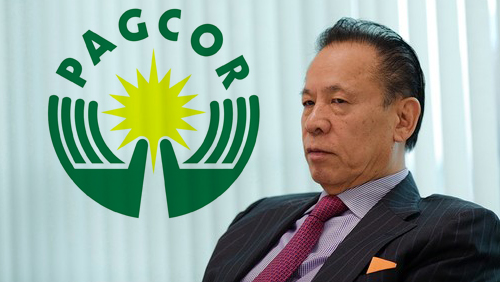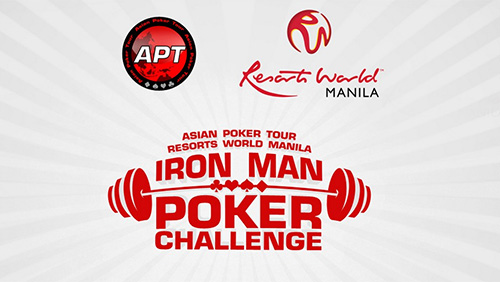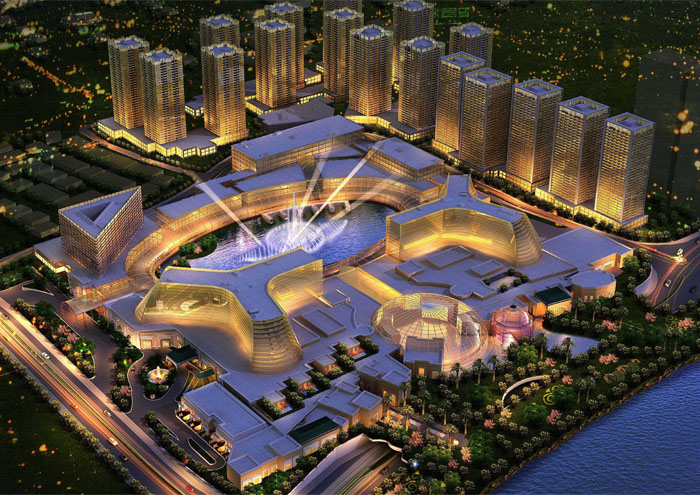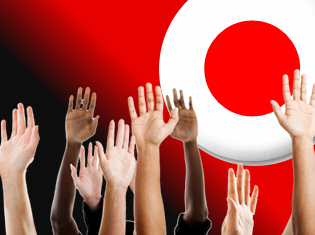Asia is widely considered as the next great gambling frontier, and for good reason. 2013 saw unprecedented gambling and casino breakthroughs in the continent, none more evident than the record revenue growth in Macau. But in the past 11-and-something months, there have also been a number of news stories that have defined gambling in Asia.
Check out which ones we found to be among the biggest.
Okada’s problems in the Philippines
 For the second straight year, Universal Entertainment chairman Kazuo Okada finds himself well and firmly represented as one of the biggest newsmakers of the year. But unlike last year’s bitter and highly hostile feud with Steve Wynn, Okada found himself answering more charges levied against him this year.
For the second straight year, Universal Entertainment chairman Kazuo Okada finds himself well and firmly represented as one of the biggest newsmakers of the year. But unlike last year’s bitter and highly hostile feud with Steve Wynn, Okada found himself answering more charges levied against him this year.
This time around, Okada saw himself in the crosshairs of the Philippine government, after getting slapped back in July with numerous violations of the Philippine Anti-Dummy Law with a bevy of other individuals and companies tied into Universal Entertainment’s multi-billion dollar Entertainment City project in the Philippines. In the months that followed, an investigation by the Philippines’ Department of Justice culminated in the filing of a subpoena on Okada to attend hearings in the Philippines and answer all the charges being thrown in his and his cohort’s direction.
Okada has yet to acquiesce to the DOJ’s request and this episode is likely to drag on in 2014. In the meantime, his Entertainment City project – Manila Bay Resorts – finally got its local investors and the development, despite his troubles in the Philippines, appears to be on track to be completed by 2015. The only question is if the casino component of that project will be there when the resort opens.
And yeah, just because the war between Okada and Wynn may have died down a bit in 2013, it would be foolish to think that this ceasefire will last. Keep an eye out on that, too, when the calendar flips to 2014.
Poker’s growth in Asia
 It might not sound like such a big deal given how big poker already is as a sport globally, but 2013 really saw quite a surge in popularity in Asia. It’s not just that more world-class tournaments were held in Asia this year, it’s the growing trend of seeing some of the best and most popular players participating in live events in that part of the world.
It might not sound like such a big deal given how big poker already is as a sport globally, but 2013 really saw quite a surge in popularity in Asia. It’s not just that more world-class tournaments were held in Asia this year, it’s the growing trend of seeing some of the best and most popular players participating in live events in that part of the world.
Phil Ivey and Tom Dwan made their first trips to the Philippines to participate in the Asian Poker Tour’s Manila Millions and High Rollers tournaments.
The World Series of Poker made its first ever trip in Asia back in April to host the WSOP Asia-Pacific. Incidentally, the $10,000 Main Event was won by no less than Daniel Negreanu and Ivey himself had a pretty good showing, taking home his ninth World Series of Poker bracelet in one of the other tournaments of the week-long poker festival.
Oh and let’s not forget the continued growth of the Asian Poker Tour, which concluded another tremendous year by setting the world’ longest continuous live poker tournament, which it set just last week when Daniel Shulenberger won a tournament that lasted 48 hours, 55 minutes, and 58.5 seconds.
It’s been a banner year for poker in Asia and there’s no reason to believe that it’s going to slow down anytime soon.
How high can Asia go with rapid expansion
 The growth of casinos in Asia cannot be understated, nor can it be properly evaluated in its current setup considering that it’s going to take a few more years before all these proposed and planned casinos open for business. But make no mistake, 2013 will always be remembered as the year when some countries all over the continent began talks of opening their countries to casinos.
The growth of casinos in Asia cannot be understated, nor can it be properly evaluated in its current setup considering that it’s going to take a few more years before all these proposed and planned casinos open for business. But make no mistake, 2013 will always be remembered as the year when some countries all over the continent began talks of opening their countries to casinos.
Macau, Japan, Sri Lanka, India, Vietnam, the Philippines, Taiwan, South Korea, and even Guam are just a number of countries where casinos made the news during the year. Whether it’s proposed legislations, ongoing constructions, or grand openings, seemingly every corner of Asia had some kind of casino happenings going on. And as the years go by and all these establishments open, everybody will point back to 2013 as the year when the proverbial ball really got going.
Match-fixing tentacles coming from Singapore?
 For all the positive gambling news generated in Asia this year, there remains one indelible black eye that the region will have to carry with it in the years moving forward.
For all the positive gambling news generated in Asia this year, there remains one indelible black eye that the region will have to carry with it in the years moving forward.
Match-fixing is a global stain that has hampered countries from all over the world, but it was only this year that it was discovered that one of the biggest crime groups that have their teeth fully sunk into match-fixing was based in Singapore. That was what Europol revealed earlier this year after conducting a thorough investigation on the worldwide criminal syndicate. The alarming reality that a match in one area can be fixed by crime groups from half a world away is chilling enough to digest.
But the numbers are really on another level. According to Europol, over 350 matches from all over the world have been infiltrated by some form of match-fixing. And this was news back in February. Lord knows how many incidents have happened since then.
And if there’s any validity to Europol’s claims that Singapore is one of those syndicate hubs, that’s a black spot on Asia as a whole.
Japan’s push to legalize casinos
 The movement in Japan to legalize casinos was such big news it deserves to be mentioned twice in our yearly review. That’s what happens when a country is already being talked about as the world’s second biggest gambling market (next to Macau) without any legislation being passed yet. There have been discussions about the status of casinos in Japan in the past few years but despite the potential riches in play, legislation has been harder to come by than tabbing a unicorn with a golden fleece.
The movement in Japan to legalize casinos was such big news it deserves to be mentioned twice in our yearly review. That’s what happens when a country is already being talked about as the world’s second biggest gambling market (next to Macau) without any legislation being passed yet. There have been discussions about the status of casinos in Japan in the past few years but despite the potential riches in play, legislation has been harder to come by than tabbing a unicorn with a golden fleece.
All that changed though when Shinzo Abe took office as the country’s new prime minister. As part of the Liberal Democratic Party, a group of progressive and forward-thinking men, talk of casinos finally opening in Japan has gained momentum in the past few months. The buzz is completely legitimate and further given more momentum after Tokyo secured the rights to host the 2020 Olympics.
With such a massive bill on their hands as cost for running the quadrennial sporting event, the onus turns to Japan to have a money-making revenue stream that can help fund the billions that will be used to create a kick-ass Olympics. The logic now stands that revenue generated from casinos can foot a significant part of that bill, making the allure of finally legalizing them that much more enticing.
Don’t’ sleep on the hype, too, because a proposed bill has already been passed to parliament and more and more world-class casino operators expressing their interest in vying for however many licenses become available if and when Japan finally welcomes casinos into its shores.
